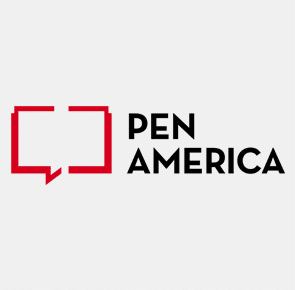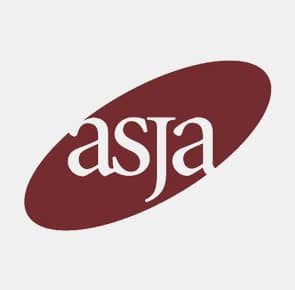Get Matched With Writing Programs
What Does a Career in Writing Entail?
Writing careers can take a variety of forms. You might be an academic writer that compiles reports and studies using a journalism degree and technical writing skills or a novelist with an English degree or a creating writing degree dreaming up fictional worlds. Alternatively, you might become a copywriter, public relations specialist, or a content marketer, using your writing skills to help brands find their voice, communicate complex ideas, or attract people to an online business; freelance writers are often drawn to these positions and aspiring writers and authors might use this kind of work to make money while they finish creative writing projects and look for a publisher. Or you might even be a journalist publishing hard-hitting news or a blogger covering the latest tech trends in an online blog format, which you can enter with a journalism degree, English degree, creative writing degree programs, or some other related bachelor's degree program.
That’s just scratching the surface. In today’s world, just about any white-collar job requires some level of technical writing or professional writing skills and competency, just as you'll need critical thinking skills and general communication skills, but doing this work full-time will require training. As with other creative fields, there’s no clear pathway that guarantees success in creative writing. In some cases, students interested in traditional or even online creative writing degree programs may first study another subject before finding their way to this field, while others study English in traditional or online classrooms and go on to earn a master’s degree or a doctorate degree in creative writing or English. Writing, or creative writing, majors vary and are quite broad in how they relate to writing careers. We’ll explore this path below, and how you can break into the field, whether you want to write for websites, become a professor, or create the next great American novel using professional writing, technical writing, or fiction writing.

Components of A Successful Career In Writing
One might argue that successful writing careers are those that provide a decent, steady living. It’s much more challenging to become a successful creative writer such as a poet or novelist than say, becoming a content writer for online companies.
First, you’ll need to figure out what you’d like to do. What kind of writer would you like to become? A journalist? A copywriter? A creative writer? All of these fields have some overlap, but if you’re looking into a sub-category like journalism or marketing, you might want to earn a bachelor's degree in that discipline and take as many writing courses or writing workshops as possible to hone your writing skills.
If you’re interested in creative writing or non-fiction, personal essays, poetry, or novels you’ll want to study for an English degree or creative writing degree, and maybe consider going for an MBA or other high-level creative writing programs. Success isn’t as clearly defined here as it is in visual arts, acting, and music; developing the right skill set is half the battle. Freelance writers may not need any education, but those who want to get into journalism certainly will. Getting your work out there and in front of the right eyes may be even harder. Online and traditional college students should make sure they consider every aspect of what they hope for out of their career before they select a subject, a writing major, and select a degree level in which to earn their liberal arts or writing degrees.
Read MoreIn the best-case scenario for writers and authors interested in creative writing, you’ll build your reputation by submitting work to literary journals and eventually get a book deal. You may also want to find a day job, which could be in marketing, public relations, journalism, or education. Others choose to save their writing bandwidth for their passion project and work in an unrelated role as they carve out their own creative path as college students and then professionals.
Business and technical writing require in-depth knowledge of your chosen subject matter. A technical writer might study something like engineering or science, rather than having a writing major before becoming a writer. Business writers, too, might major in business or gain some experience working in a managerial or executive level role before writing about their experience. Either way, writing skills are absolutely required to get anywhere in either of these endeavors.
Professional writers working in journalism, marketing, public relations, business, or technical writing roles might start their role working in an office environment or a department where they’ll write or edit and publish articles or blogs online for clients or a company, often supervised by more senior writers and editors.
A successful commercial writing career typically involves first building your portfolio, then charging higher rates as you gain experience. You might find that you prefer working in a specific niche and establish yourself as an expert in the space.
Featured Online Programs
How to Earn a Degree in Writing
What Can You Do With this Degree?
 Writing is a diverse field, with many different points of entry. You can become a screenwriter, a copywriter, book author, or teach classes. Other writers find success writing for the web, creating online content for companies that want to get their name out there. Whether you make much money or not depends on your niche, your skill, and your experience. According to the Bureau of Labor Statistics (BLS), about around 60% of working writers are self-employed freelancers.
Writing is a diverse field, with many different points of entry. You can become a screenwriter, a copywriter, book author, or teach classes. Other writers find success writing for the web, creating online content for companies that want to get their name out there. Whether you make much money or not depends on your niche, your skill, and your experience. According to the Bureau of Labor Statistics (BLS), about around 60% of working writers are self-employed freelancers.
Still, even within that niche, there’s a lot of diversity. You might work as a freelance copywriter and spend most of your time working on web content for technology companies, ghostwrite memoirs for political figures, or write for a magazine.
Typical Writing Degree Requirements
In general, a high school diploma is the minimum point of entry for a career in writing. You can become a writer through an informal education or you can opt for a traditional path where you’ll learn the basics along the way.
To gain admission to a writing program, you’ll need a high school diploma or GED and you may need to have a certain GPA or SAT score to be admitted to more exclusive schools. If you had low grades in high school, you can begin your academic career at a community college and transfer to a four-year (bachelor's degree) after earning your online associate in a writing degree program.
Find Your Online Writing Program
If you plan on working in a professional field, you may want to land an internship working in your chosen career path—this might mean an aspiring screenwriter heads to Hollywood for a hands-on experience, or an aspiring marketing writer interns at a marketing agency. Student journalists can work at the school paper or intern with a publication during summer break.
Coursework will involve reading and writing and developing your writing voice. In general, you’ll want to choose a program that allows you to reach your specific goals. Do you want to pursue an MFA to study literature or do you want to set yourself up for a professional career?
Typical Writing Certifications Needed
 Writing certifications aren’t necessarily a requirement for any writing career. Certifications are typically offered as a supplement to existing writing degrees or as proof that you’re keeping up with the changes in your field—i.e. you’re a marketing writer that earns SEO certifications or takes a social media class to refresh your knowledge.
Writing certifications aren’t necessarily a requirement for any writing career. Certifications are typically offered as a supplement to existing writing degrees or as proof that you’re keeping up with the changes in your field—i.e. you’re a marketing writer that earns SEO certifications or takes a social media class to refresh your knowledge.
Alternatively, you might look toward a writing certification if you want to work as a professional writer but have a bachelor's degree in a field other than writing or the English language. This might be a good path for someone with a technical background who wants to work as a technical writer. This is a good way to enhance your understanding of grammar and parts of speech as well as best practices in writing for the web or for specific types of clients.
Academic Standards for a Writing Degree
Again, to earn an online bachelor’s from any liberal arts program, not just in writing programs, you’ll need to successfully complete a series of foundational courses and courses that go toward your major. In some cases, you may need to achieve a specific GPA to receive your diploma. As far as overall standards are concerned, college students will want to make sure you seek out an accredited college or university after they select a degree level and choose traditional or online degree programs. This will ensure that they receive an education that meets the agreed-upon expectations for any online degree level: associate or bachelor’s degree.
Exam/Experience Needed for a Writing Degree
To be admitted into an online bachelor’s degree program, you may need to submit a transcript, as well as ACT or SAT scores. Depending on the schools you’re interested in, you may need a certain score to gain entrance into the program. Then, to actually complete that degree program, you’ll need to complete your general education requirements, plus the coursework that goes toward your writing specialization.
Associate Writing Degree Online
Online Associate degrees provide practical knowledge aimed at preparing them for an entry-level career over a two-year period. At this level, students will learn writing fundamentals and may choose to take a mix of creative and professional writing courses.
Earning an online associate degree is a good choice for students who aren’t sure what they’d like to study but may be interested in writing. After completing this online degree students can finish the remainder of their bachelor’s degree at a four-year college or university.
Bachelor's Writing Degree Online
An online bachelor’s degree program typically takes four years to complete and provides you with the skills to either enter the workforce or continue your studies in an MFA program. At this level, majors typically include creative writing, English, literature, marketing, or journalism.
Master's Writing Degree Online
An online Master’s program can take two forms, a Master of Fine Arts, or MFA, which is dedicated to helping students hone their writing abilities and a Master of Arts or MA, which aims to provide an academic focus on literature. A master’s degree is ideal for students who plan on becoming an academic writer or teach at the university level. It may also be a smart choice for experienced writers who wish to start a business or further develop their skill set.
Earning Potential for Writing Degree Fields and Occupation
According to Payscale, writers with a bachelor’s degree earn around $48,000 a year, copywriters earn about $49,000, and technical writers earn about $58,000 on average. The breakdown on whether a master’s degree will increase your earning potential isn’t especially cut and dry. Creative writers with a bachelor’s degree earn about $51,000 on average and those with an MFA in creative writing see a small increase in earnings, with a median income hovering around $55,000.
Writing Fields of Study Median Salaries
Students can choose to pursue programs focused on developing the art of writing or preparing for a career in media, marketing, or journalism.
-
Creative Writing
In creative writing students will learn about literary theory, composition, and revision and may choose a focus such as children’s literature, fiction, non-fiction, poetry, or scriptwriting. Typically, students enrolled in a creative writing program do so to prepare themselves for a career as a published author. -
English
English majors study writing and literature, so, rather than focus primarily on their own writing, students will analyze others’ work. Often, the curriculum covers contemporary literature, classic works, and provides an introduction to different types of writing—fiction, non-fiction, personal essays, etc. -
Technical Writing
Technical writing centers around science, medical, or business writing. This prepares students for a career writing about complex topics and making them approachable to the average user. In some cases, you might need to obtain a certification to find work, namely in areas like medicine where you’ll need to have a clear understanding of terminology. Aspiring technical writers learn to create white papers, instruction manuals, and in-depth documentation. -
Professional Writing
Professional writing degree programs are similar to English or Creative Writing majors, but this is a career-oriented degree that may leave out areas like poetry in favor of digital communications. -
Journalism
Journalism degrees are also career-focused, designed to teach students the skills needed to work for a newspaper or digital publication. Journalism programs may focus more on practical application than artistic expression or text-based analysis.
Writing Salaries by Occupation
-
There’s overlap between content writing and copywriting and many writers do both. Copywriters write marketing materials, white papers, social media posts, emails, blogs, and more. In this role, you might work for one particular company or a range of clients. Some copywriters focus on one niche area like healthcare or technology, while others are more jack-of-all-trades.
Copywriter – Average Salary: $52,500Find Online Writing Schools
-
Grant writers typically work for non-profits and write proposals to apply for financial support from charities, government agencies, private donors, and trusts. Grant writers spend a great deal of time researching grant opportunities and determining which grants are worth pursuing. From there, they prepare a variety of documents and a plan for how the organization plans to use the funding.
Some grant writers offer their services on a freelance basis, working with a number of organizations, while others take on the writing for one large non-profit.
Grant Writer – Average Salary: $48,900 -
Technical writers are a bit different than the other types of writers on our list. Their job is to write instruction manuals, how-to guides, or assembly instructions. This role requires a background in writing but often experience with a technical subject. So they work with engineers, technical experts, and other professionals that can help fill in the gaps.
Many technical writers enter the field after working in engineering, technology, healthcare, or science. Others may enter the field by obtaining some supplemental training to differentiate themselves from others in the field. Organizations like the American Medical Writers Association offers continuing education programs to get writers up to speed with industry standards.
Technical Writer – Average Salary: $60,600 -
Just about every company has a website and needs writers to create content, handle social media accounts, and create blog posts and articles. Content writers typically conduct a lot of research to deliver what the client needs. This role requires a great deal of flexibility—you’ll need to write in different tones, take on new subject matter, and work with a range of client expectations. Though not always required, content writers with SEO, HTML, WordPress, and CSS knowledge will have a leg up on their peers who don’t have a clear understanding of the digital landscape.
Content Writer – Average Salary: $46,500 -
Journalists write and edit news stories that aim to educate the public about issues and events and how they impact peoples’ lives. Their job involves research, interviewing sources, and keeping an eye out for newsworthy stories. Most journalists complete a bachelor’s degree before they are qualified to work in their field. You might earn a degree in communications, journalism, media, or writing. If you’re interested in covering a particular beat, it might be worth it to take classes in that field — political science, technology, fashion, etc.
Journalist – Average Income: $40,700 -
Like novelists, screenwriters might also start their careers by earning a bachelor’s degree in creative writing. Or they’ll study screenwriting or film instead. In any case, screenwriters need to be able to draft scripts that tell a compelling story. Breaking into the field typically involves taking an internship at a production studio and/or finding work as a writer’s assistant after graduation.
Many aspiring screenwriters get their start by entering writing competitions. If your script makes it to the final stage, it’s a great way for someone in the industry to “discover” your work. As with writing novels or short stories, screenwriters can enter the path through a few different avenues, but making connections with people in your field will make things easier.
Screenwriter – Average Income: $80,000
Important Questions to Ask (FAQ)
How long does it take to earn an online Writing bachelor’s degree online?
 Typically, an online bachelor’s degree program in writing takes about four years to complete. Some online programs offer an accelerated format, and it might be easier to take a full class load if you have some flexibility when it comes to completing your homework or studying. Some programs are fully online, though if you decide to take online courses through a traditional university, you may end up taking a hybrid mix of in-person and online classes as well.
Typically, an online bachelor’s degree program in writing takes about four years to complete. Some online programs offer an accelerated format, and it might be easier to take a full class load if you have some flexibility when it comes to completing your homework or studying. Some programs are fully online, though if you decide to take online courses through a traditional university, you may end up taking a hybrid mix of in-person and online classes as well.
It’s also worth pointing out that many online students opt to pursue their education this way because they work full-time or have other responsibilities. A writing degree likely won’t come with a whole lot of in-person obligations, however, you will be spending a lot of time reading and writing—which tacks on a considerable workload that eats into your day-to-day. Additionally, you may want to build in some time for networking or completing an internship to lock down better job prospects after graduation.
How much does an online Writing bachelor’s degree cost?
The average cost of earning an online bachelor’s degree is about $30,000, on average, whether on-campus or online. However, the cost of your bachelor’s degree depends on several factors. Which state do you live in—and are you a resident of that state? Is the school a private or public institution—is it a top-tier school with high tuition or an affordable state university? What kind of financial aid do you qualify for?
Writing Bachelor’s Degree Coursework
As we mentioned, most schools don’t offer a program that covers generic writing. Creative writing majors typically study literary theory, fiction and non-fiction writing, playwriting, poetry, and screenwriting. If you choose to study journalism, your course load might look a bit different. Typical courses include news reporting, journalism fundamentals, editorial, and feature writing, media ethics and research methods, and public relations. Professional/technical writers will learn technical writing and editing skills, proposal writing, writing for the web, document design, and business writing. Then there are majors like marketing or communications where you’ll spend time writing and take classes in journalism, business writing, and business or digital marketing classes.
Does the online school have the major(s) you’re considering?
Because writing is such a diverse area, you’ll want to choose your major carefully. Most schools will have an English or creative writing major, as well as marketing or journalism, but others offer more niche majors that dive into a particular area of interest like science writing or writing web content.
That said, many writing jobs depend on being able to produce high-quality work rather than the kind of degree you have. An online bachelor’s degree will help you get your foot in the door, but you’ll want to choose a program that helps you develop marketable skills.
How many students graduate “on time,” in four years?
Graduation rates aren’t the most important metric to consider, but they do give you a sense of the quality of the program. A low graduation rate can be a sign of a few red flags—does the program not offer required classes on a predicable schedule? Is the faculty stretched too thin to be supportive? Are there few resources for students who need extra help? What kind of campus resources are available—think networking, recruitment, professor office hours, career counseling, the list goes on.
What kind of accreditation does the online program hold? How is it regarded in the field?
If you’re looking to earn an online bachelor’s degree, don’t waste your money on a diploma from a school without accreditation. A bachelor’s degree, regardless of major, is the barrier to entry for most professional roles. Make sure that your school is regionally accredited before committing—otherwise you might find that you’re unable to attend graduate school down the line or you’ve been disqualified for a job.
The exception here is, there are a lot of online courses, workshops, and certification programs that aim to help writers develop a skill set or learn more about a specific subject. In these cases, accreditation isn’t quite as important as the content—just make sure you research these programs before enrolling and know that they are not a replacement for a bachelor’s degree.
Software, Technology & Skills Needed
A strong command of the written word isn’t enough to become a successful writer. You’ll need to balance your creativity with a well-rounded skillset that will give you a leg up in a business setting and beyond.
Here are a few skills that aspiring writers should develop before they start looking for work in the real world.
-
Self-Motivation Mostly being freelancers or self-employed, writers must be prepared to put themselves out there and look for new opportunities, and motivated to meet deadlines without supervision.
-
Research Whether you’re citing statistics or crafting an accurate work of historical fiction, you need some solid research skills.
-
Flexibility Writers in an agency setting or with many clients need to be flexible. Different projects require a different voice—and sometimes you might need to accommodate requests that you don’t necessarily agree with.
-
Detail-Oriented Spelling, grammar, formatting—while editors are often responsible for making corrections, you’ll need to make sure your work is in top-form before you send it off.
-
Communication Writing is one thing but communicating with people is something else. You’ll need to be able to pitch ideas—both verbally and in writing, take feedback, and communicate with clients about projects, progress, and more. Additionally, a lot of being a professional writer is about keeping up with several conversations—you have editors, publishers, clients, and so on, each with different expectations and deadlines.
Search Programs Offering Writing Majors
As far as technology goes, successful writers don’t need to be super tech-savvy, but they do need to have strong internet research skills and should be able to use a handful of software programs – like marketing tools, social media, or WordPress to enhance their output.
Writing Scholarships
-
BOA Short Fiction Prize
Amount: $1,000
Deadline: May 31BOA’s American Reader Series publishes short works of fiction based on artistry. To participate in the annual contest, you must submit an unpublished, original work of fiction. This writing opportunity is available to amateur writers ages 18 and over. The prize is worth $1000, and applicants must be US residents.
-
Ruth Lilly Poetry Fellowships
Amount: $25,800
Deadline: April 30The Ruth Lilly Poetry Fellowships are named for philanthropist Ruth Lilly and are intended to help students further their study of poetry. To qualify for the $25,800 reward, students must be between the ages of 21 and 31 and be US citizens. Applicants may submit published or unpublished work to demonstrate their skillset.
-
LAGRANT Foundation Undergraduate Scholarship
Amount: $2,500 (Trip to New York or San Francisco for event.)
Deadline: Varies (Previously February 28)The LAGRANT Foundation scholarship is awarded to undergraduate students who are ethnic minorities with a minimum 3.0 GPA. Students must be enrolled in a program with some focus on advertising, marketing, or public relations and must commit to a year-long relationship with the foundation for academic and professional mentoring. The award is worth $2,500 and includes a trip to New York or San Francisco to participate in a career-building event.
-
Davidson Fellows Scholarship
Amount: $10,000, $25,000, $50,000
Deadline: VariesThe Davidson Fellows Scholarship is granted to exceptional students, 18 and under, who have already completed a significant piece of work. Awards are given to students in a range of categories, including literature and range from $10,000-$50,000.
Professional Writing Organizations
There are countless writing organizations. There are niche groups like the Cat Writers Association, romance writers groups, science fiction groups, and more. Below, we’ve included some well-known organizations, but keep in mind that there is no shortage of writing groups covering just about every corner of the profession.
- AG
- AMWA
- PA
- ASJA

AG
Authors Guild
The Authors Guild is a national professional organization for creative writers. The organization supports the nation’s literary culture and welcomes published poets, fiction and non-fiction writers, journalists, and historians. This organization supports authors’ rights and advocates on their behalf on matters of free speech, copyright infringement, fair compensation for work, and more. They also provide networking opportunities, international press cards, author websites, and a resource library for working writers.
Regular membership is offered to traditionally published authors in the US with at least one published book or freelance writers who have made at least $5,000 in the past 18 months. Associate membership is offered to authors who have received an offer of representation from a publisher or freelance writers who have made $500 minimum over the past 18 months.

AMWA
American Medical Writers Association
The AMWA is a professional organization specifically designed as a resource for technical writers in the medical space. The organization offers continuing education, career opportunities, and a credential that allows writers to demonstrate their expertise to potential employers.

PA
Pen America
Pen America is a national non-profit that brings writing and human rights together—their goal is to protect free speech and creative expression on a global scale and take on a range of issues from fake news to free media and bringing a voice to oppressed groups around the world.

ASJA
American Society of Journalists and Authors
The ASJA is a professional organization for independent and non-fiction writers. According to the organization’s website, the ASJA is made up of journalists, freelance writers, non-fiction authors that have achieved a some level of professional success (they offer two types of membership—associate—for those working as professional writers at a publication/media company and professional--which is offered to national level writers). The organization takes on advocacy positions aimed at helping professional writers make a living and receive fair treatment while on the job. They support the first amendment and advocate for writers’ rights in court.
Choosing an Accredited College
Whatever you decide to study, your best bet is to earn your degree from an accredited college. While writers can find work based on skill over credentials, most jobs, regardless of industry, require a bachelor’s degree. Seek out schools with a regional accreditation, rather than a national accreditation. Regional accrediting agencies provide quality control for the colleges and universities in their area, ensuring that students receive a basic standard of education when they earn their bachelor’s degree.
By contrast, national accreditation tends to be a less rigorous standardized, and some schools with this designation may not be seen as legitimate by some employers or graduate schools.
Online vs. On-Campus vs. Hybrid
While online schools have a distinct set of benefits, students may miss out on opportunities to make connections with other students and faculty. Traditional campus programs, however, don’t fit into everyone’s schedule, and some students may have to commute long distances or relocate to enroll.
A hybrid program can bring students the best of both worlds—allowing for students to take classes online and in-person, based on their schedule. These days, plenty of universities and colleges offer classes in both formats, which may help ease the burden on students with jobs and other responsibilities.
Frequently Asked Questions
Does the College Have Post Graduate Job Placement Help & Assistance?
Resources such as a career center, internship opportunities, or mentoring programs are also something to look out for when evaluating your educational options. That extra level of support can go a long way when it comes to finding a job, getting started in a career, and succeeding academically.
Why You Need to Consider How Rating/Accreditation Can Affect Your Salary
Again, accreditation plays into whether your degree is deemed valid by future employers and whether you are eligible to apply, and enroll in, a graduate program. Accreditation is more important than ratings, as accredited schools all provide a bachelor’s degree that meets an agreed upon set of educational standards. Ratings, however, can be important. When you do your research, review which factors contribute to a school’s overall rating - is it graduation rate, academics, something else? How does the writing program stack up with the school’s overall rating; for example, one school with a high rating might not have the best writing program, though a lower ranked school might have a better program.
Search All Programs
